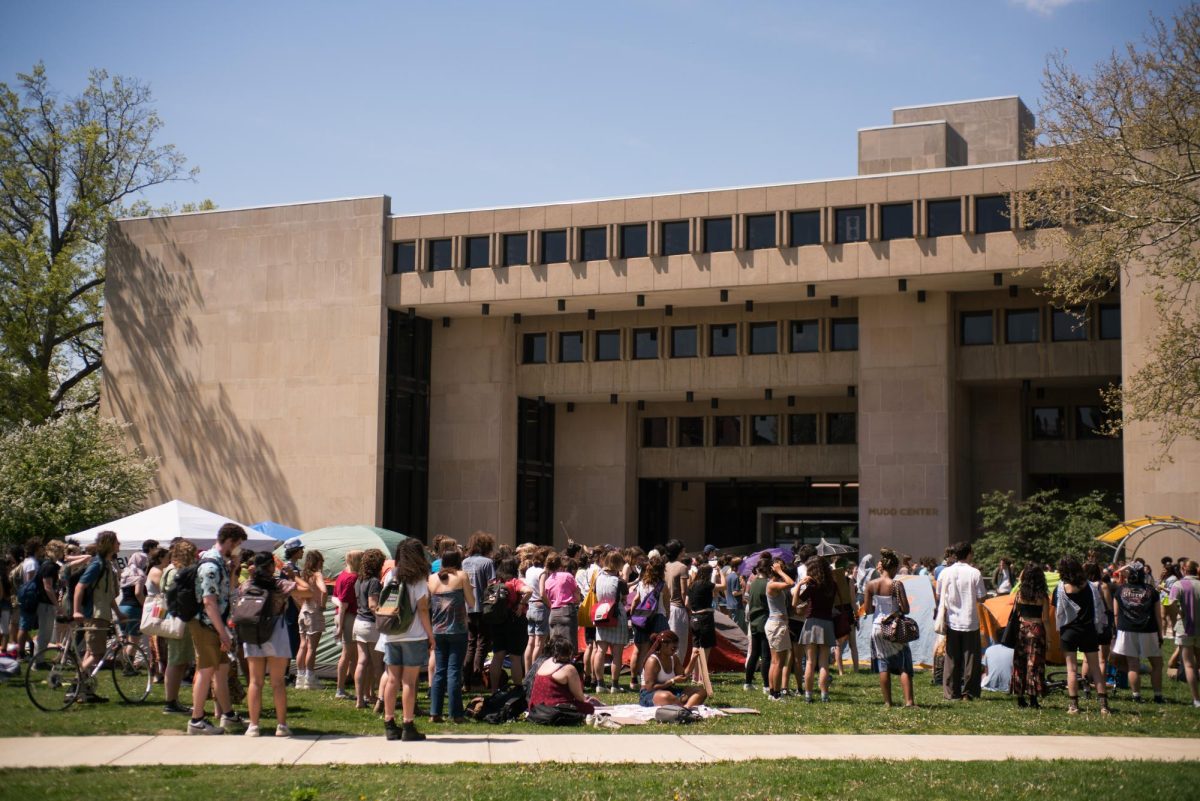During a student protest three weeks ago in response to Oberlin’s tepid statements of compassion and neutrality in light of the ongoing Israel–Palestine conflict and the College’s ongoing entanglement with corporations that support the Israel Defense Forces, participants asked the Dean of Students, amidst chanting and some heckling, if the College’s administration would condemn Israel’s killings of Palestinian civilians. No direct answer was given, which followed an ongoing pattern of indirectness and equivocation on the part of the College in its communication with students regarding the crisis.
While recognizing concerns “about the loss of life, Islamophobia, collective blame and reprisals, … violence and discrimination” among the Muslim community, statements released by the Office of the President prior to the protest omitted any reference to or use of the words “Palestine” or “genocide.”
The Dean’s response on behalf of the administration during the protest demonstrated a similar unwillingness to address Israel’s state violence. At times it seemed as if the Dean was answering a separate question entirely: whether or not there is a two-state solution, what qualifies as genocide given the technicalities of the term, but not the rather simple question at hand.
I mention this because I feel that it follows another equally problematic pattern: the conflation of whether one condones or condemns Israel’s killings and oppression of Palestinian civilians with one’s stance regarding Israel’s statehood or the value of the lives of its civilians. I’d like to disentangle these from each other.
To condemn the actions of Israel’s government is not to negate Israel’s statehood nor to advocate for its abolition, nor to state support for Hamas. It is certainly not to deny the value of the lives of Israeli civilians, nor the tragedy of their losses amidst this conflict.
To advocate that Palestinians be accorded equal dignity and that their lives be treated with equal reverence frankly doesn’t seem that radical to me. A formal condemnation of Israel’s conduct is quite literally the least that the College’s administration can do. A divestment from corporations that support the Israel Defense Forces seems to me like the logical next step of putting such a stance into action.
Oberlin College is a liberal arts college; prioritized in its mission statement is the encouragement of a “campus culture of critically thinking scholars who engage with and support one another in their learning” and the empowerment of students to “listen, think, write, and speak with intention, in an effort to foster creativity and encourage intellectual flexibility.”
Yet its administration seems to be either engaging in its own dangerous wrongful conflation or seems to be altering its response for fear of how it might be misinterpreted by its students.
How can Oberlin encourage its students to think critically if it censors their communication with us? Its refusal to condemn or even address an egregious case of state violence suggests that it doesn’t trust us to distinguish between productive critique of a nation’s government and wholesale condemnation of its existence and its people, and cheapens our education by suggesting that it has not adequately instilled in us the qualities that are its mission to cultivate.
I implore the College to consider what message it sends by pandering like this — namely, that students should sacrifice their principles based on how they might be received, advocating not for victims of disenfranchisement and systemic violence but rather catering to those who condone such treatment.



